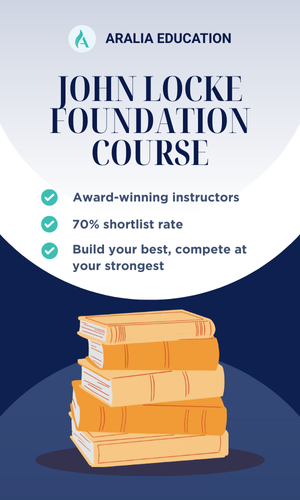To get the most out of reading, there are a few key areas you should notice and master. Each of these skills builds on the others, creating a foundation that makes reading easier, more enjoyable, and more meaningful. Let’s break down these basic reading skills every student should know and explore simple ways to practice them every day!
Critical Comprehension
While reading assignments in lower grades tend to be straightforward and accept surface-level understanding, high school students must go beyond to evaluate arguments and question the author’s perspectives. This essential practice sharpens your critical thinking and directly prepares you for the SAT/ACT reading sections, which consistently test your ability to analyze ideas in-depth.
To transform this analytical mindset into an effective daily habit, try annotating readings with questions and bringing your observations to class discussions. Write down what your peers and teachers have to say about the material and compare those ideas with yours. What did you miss that those other ideas covered, and vice versa?
85% of Aralia Students Place in Top Writing Competitions
2. Vocabulary in Context
Rather than memorizing endless word lists, you can learn to infer meanings from context and understand discipline-specific vocabulary. From now on, when you stumble across a word you don’t know, try to read everything else in that sentence or paragraph. Note down what you don’t know and try guessing those words’ meanings in their respective contexts. After that, look up those words and see how close you got to the actual meaning.
Can you identify any patterns, like etymology and roots, in words you don’t know? This ability to deconstruct language is essential for decoding unfamiliar words. Many complex English words are built from ancient Greek and Latin roots. For example, consider the word ‘beneficial.’ If you recognize the Latin root ‘bene,’ meaning ‘good’ or ‘well,’ you can instantly infer that beneficial means ‘resulting in good or advantageous effects,’ even if you haven’t encountered it before. Likewise, words like malefactor or malevolent use the root ‘mal,’ meaning ‘bad.’ Recognizing these common prefixes, suffixes, and roots allows you to decode complex vocabulary quickly and accurately.
This exercise helps you decode unfamiliar words on the fly, which helps tremendously in situations where you don’t have access to a dictionary, like in standardized tests or exams. This will also help you expand your vocabulary and enhance your writing, as you now know words and their nuanced usage.
Recommended Resources: Phonics Pathways by Dolores G. Hiskes
3. Fluency
Reading fluently means reading smoothly, accurately, and expressively. This ability is crucial because it allows your brain to shift focus from decoding individual words to grasping the complex meaning of the text, significantly boosting comprehension and retention. A key sign you need practice is noticing that you struggle with reading aloud or focus more on the words than the ideas.
Improving fluency builds confidence and makes reading more enjoyable. To practice, regularly read familiar texts out loud, follow along with audiobooks, use poetry to work on rhythm and expression, or join a reading group for collaborative engagement.
4. Vocabulary
Vocabulary is the set of words you understand and can use effectively, and it is a key part of becoming a strong reader and communicator in high school. A solid vocabulary is essential for understanding complex texts, expressing ideas clearly, and building confidence in reading, writing, and speaking. If you find yourself stumbling over unfamiliar words or struggling to explain your ideas, that is a sign that you could focus on expanding your word knowledge.
To practice, you can keep a personal vocabulary journal, read across different genres to encounter new words, discuss their meanings with friends or teachers, or use word games and flashcards to reinforce the definitions of challenging words.
Recommended Resources: Wordly Wise 3000 series
Improve Your Grades Within One Semester
5. Comprehension
Comprehension is the ability to understand and interpret what you read, and it is the ultimate goal of reading because it allows you to make meaning from texts and think critically about the ideas they present. Strong comprehension relies on other reading skills such as fluency, vocabulary, and analytical thinking, and it is essential for success across all high school subjects.
To improve your reading comprehension, ask questions about the text, summarize passages in your own words, and discuss stories with peers or teachers to deepen understanding. Ultimately, reading comprehension helps you approach challenging texts with confidence.
Recommended Resources: Strategies That Work by Stephanie Harvey and Anne Goudvis
Developing these advanced reading skills equips high school students with the tools to tackle complex texts, think critically, and succeed academically. Furthermore, it is essential for building confidence and a lasting love of reading. While it is important that teachers and peers offer guidance and discussion in the classroom, it is your consistent daily practice that is key. With an appropriate approach, you will become a confident reader who is ready for lifelong learning.
Join Aralia's Intensive Reading Program For Young Learners
Spark your child’s imagination and build powerful reading skills. This thoughtfully designed program guides students through classic English books, personalized reading paths, and engaging lessons that develop vocabulary, comprehension, writing, and critical thinking while fostering a genuine love for literature.









